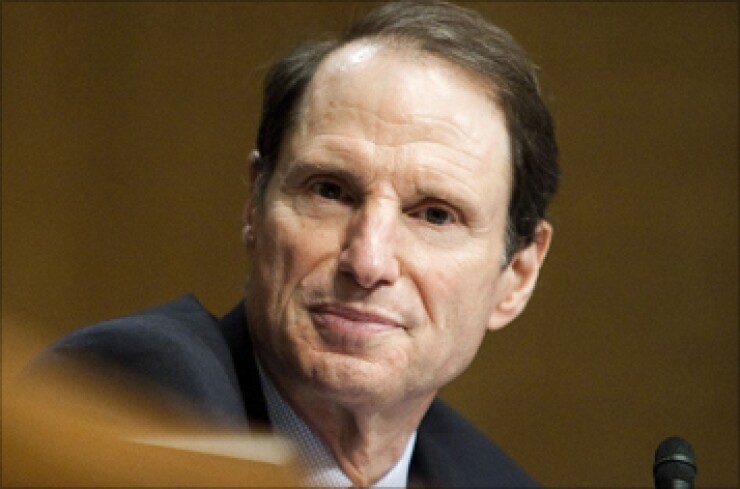
WASHINGTON - Move America Bonds should be more attractive to many members of Congress than Build America Bonds, Sen. Ron Wyden said on Wednesday.
"There are a lot of lessons that have been learned here from Build America Bonds," said Wyden, an Oregon Democrat and the ranking member on the Senate Finance Committee. He and Sen. John Hoeven, R-N.D., promoted their legislation to create these bonds at a Bipartisan Policy Center event.
The two proposed the bonds in the Move America Act of 2015 that they introduced in May.
Wyden said he was the principal creator of BABs, which were authorized under the American Recovery and Reinvestment Act of 2009. State and local governments could issue BABs in 2009 and 2010 as taxable, direct-pay bonds and receive federal subsidy payments equal to 35% of their interest costs.
The ability to issue BABs expired at the end of 2010. Conservatives have concerns about reviving the BAB program due the federal government's large involvement in it, Wyden said.
Unlike BABs, Move America Bonds would bear tax-exempt interest and be a permanent program.
"We said, 'We're going to do something different here,'" Wyden told the attendees of the event. "We're going to run this through the state and local authorities so the federal role is vastly reduced, and we're going to spend a lot of time in effect looking at the private sector."
Wyden said that investors in Move America Bonds with in higher tax brackets would essentially be getting a tax break, but that that may change after tax reform.
No other approach to infrastructure financing has a stronger return on investment than the one in the Move America Act, Wyden said.
Most infrastructure in the United States is built at the state and local level and is financed by tax-exempt municipal bonds. But the bond market doesn't work very well for projects with private-sector involvement because of restrictions in the tax code, Wyden said.
Move America Bonds would be private-activity bonds with some eased restrictions. While exempt-facility bonds for airports, docks and wharves and mass commuting facilities have to be governmentally owned, Move America Bonds used for those purposes could be privately owned. Additionally, Move America Bonds would not be subject to the alternative minimum tax.
With their bill, he and Hoeven are "building on what works," Wyden said.
Hoeven said that the Move America Act doesn't require states to do anything, but provides them with opportunities.
"It's not a case of the federal government going out and saying, 'You've got to do it this way, and you've got to do these projects,'" Hoeven said. Instead, the decisions over what projects are financed are placed "in the states' hands," he said.
The bill also doesn't require more bureaucracy. It simply "empower[s] the states to work with the private sector to do the things they want to do and to truly leverage their dollars." Hoeven said. "So I think it's an idea whose time has come."
Move America Bonds would be subject to new volume caps equal to 50% of states' PAB volume caps. The Move America Bond volume cap could be converted to allocations of tax credits called Move America Credits.
Hoeven said the credits are aimed at incentivizing private companies to get involved in public-private partnerships with equity. Projects can be built faster when there is private-sector involvement, which can save state and local governments money.





